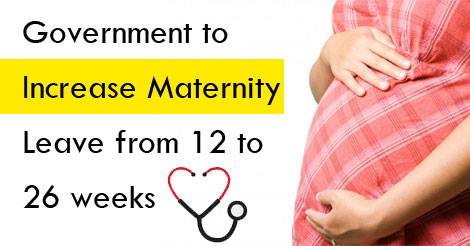In this article, Rajan S who is currently pursuing M.A. IN BUSINESS LAWS, from NUJS, Kolkata, discusses the recent amendments in Maternity Benefit Act.
Everything You Need To Know About The Recent Maternity Benefit Amendments
The aim of Maternity Benefit Act, 1961 is to regulate the employment of women employees in factories, plantations, mines, shops, the circus industry and establishments having ten or more persons, for certain periods before and after childbirth and also to provide maternity and other benefits.
Recently, the Rajya Sabha has passed the Maternity Benefit (Amendment) Bill, 2016 towards the Maternity Benefit Act, 1961 which has addressed the various provisions which are mainly focussed on enhancing the maternity benefit.
This amendment was passed based on the recommendations from the 44th session of Indian Labour Conference (ILC) and the reiterations on its subsequent sessions of ILC. Moreover, the Ministry of Women and Child Development has also requested to enrich the maternity benefit. The proposed change was deliberated in Tripartite Consultations and further, it has been concluded to amend the Maternity Benefit Act 1961.
This amendment to the Maternity Benefit Act would be at par with international labour law standards set by the International Labour Organisation. Conversely, some of the proposed alterations could impact on cost to employers.
The following are the salient features of the proposed amendment,
Enhancement of paid Maternity Leave
- The existing paid maternity leave 12 weeks has been proposed to amend 26 weeks which is only applicable for the women who have less than two surviving children. Out of this 26 weeks, 8 weeks (previously 6 weeks) maternity leave can be availed before the expected date of delivery. However, for other cases the existing maternity paid leave shall continue i.e. 12 weeks period.
Maternity Benefits to Surrogate mother
- For the maternity benefit of Commissioning mother or surrogate mother (means a biological mother who uses her egg to create an embryo implanted in any other woman) shall be entitled for paid surrogacy leave of 12 weeks from the child handed over date. The same benefit shall also be applicable to adopting mother, provided the adopted child is less than three months old.
Work from home option
- This provision gives an option to women after her maternity leave. However, the terms of work at home option is applicable as may be mutually agreed between the employer and the women.
Crèche facilities
- The proposed amendment also has the benefit of crèche facilities to be mandatorily provided for the women by the employer who has 50 or more employees. The prescribed rules such as distance to the facility from the establishment, whether shared or individual crèche facility, whether chargeable basis or free of charge to the employee, would be guided on government official notification.
- This amendment permits the eligible women to make four visits per day to the crèche facility including the interval for rest.
This amendment also dictates that every establishment shall intimate to every woman in writing and electronically, at the time of appointment about the benefits available under the Act.
Given this amendment, below provisions remain unchanged for getting the maternity benefit,
- No change in Eligibility criteria i.e. only those women are eligible who has worked minimum 80 days in the 12 months prior to her expected delivery date.
- Also, it continues to prohibit the Employer to employ women for a period of six weeks immediate after her delivery.
This amendment shall come into effective from the date of Central Government notification in the Official Gazette.
Seeing these provisions in said amendment, particularly increase in maternity leave period and the crèche facilities to be provided by the employer would make a substantial impact on the cost to employer and may lead to potential decrease in the women employee recruitment.
On the other hand, this will indirectly create a goodwill among women employee with their employer which may pave the long term working with that employer. Moreover, it will also enhance the standard of parenting and reduces the strains for the working women during maternity period.
 Serato DJ Crack 2025Serato DJ PRO Crack
Serato DJ Crack 2025Serato DJ PRO Crack








 Allow notifications
Allow notifications



I joined organisation in Feb’18. And post that I had an unexpected pregnancy. My due was in Oct’18. I worked in the organisation till Sept’18 withot taking any unpaid leave. Am I eligible for paid Maternity leaves?